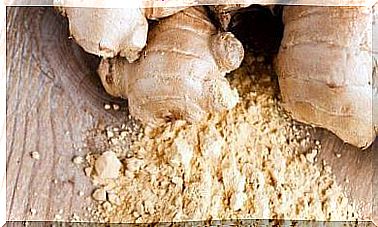Licorice Root For Relieving Abdominal Pain

Licorice root, glycyrrhizia glabra, has long been used as a treatment for a variety of ailments, e.g. in relieving abdominal pain. It is used in the food industry as a sweetener as well as in softening the taste of some medicines due to its sweet characteristic taste.
Licorice root is also found in herbal tea, capsules, extracts and supplements. Its purpose is, among other things, to relieve indigestion, menopausal symptoms and infections.
But is licorice root safe to use? Is there any evidence of its supposed properties? There is not yet enough evidence that licorice root can be used to treat diseases. However, some research findings support its use as a supplement in the treatment of digestive problems.
Properties of licorice root
Let us first consider the properties of licorice root. According to information published by Acta Pharmaceutica Sinica B , licorice root contains more than 20 triterpenoids and almost 300 flavonoids. This may explain its pharmacological properties.
Here are some properties of licorice root:
- Anti-virus
- Antimicrobial
- Antioxidant
- Anti-inflammatory
The evidence is still limited regarding the properties of licorice root and the topic is still under investigation. However, some studies state that its efficacy is promising for the development of low-cost and effective drugs in the future.

Licorice root can be used to relieve stomach problems
It is widely believed that some chemicals in licorice root, such as flavonoids, can help reduce swelling and speed up the relief of gastrointestinal problems. There is no solid evidence for this yet, but some studies have led to interesting findings.
For example, a study published by Evidence-Based Complementary and Alternative Medicine found that glabridin and glabren in licorice root helped relieve stomach problems such as nausea, abdominal pain, and heartburn.
A study published in the journal Phytotherapy Research , on the other hand, claims that the glycyrrhizinic acid contained in licorice root has anti-inflammatory and immune-stimulating properties that help fight H. Pylori bacteria. It is a microbe that causes a number of different digestive disorders, such as stomach ulcers.
This was also evidenced by a clinical study published in The Brazilian Journal of Infectious Diseases . In it, 120 people noticed positive effects in removing H. pylori bacteria from the body when licorice root extract was added to the basic treatment method of patients.
Side effects
Please discuss with your doctor before using licorice root as a supplement to treat digestive problems. This way, your doctor can determine the dose that is right for you. He or she can also help determine if it has any side effects or possible effects on other medications.
According to data compiled by the National Center for Complementary and Integrative Health (NCCIH) , no one should use licorice root in large quantities and for long periods of time. Excessive amounts can lead to high blood pressure as well as low potassium levels. It increases the risk of heart and muscle disease.
The use of licorice root is not recommended during pregnancy. The use of licorice root as a supplement when diuretics are used at the same time can also be harmful to the heart. Other possible drug-drug interactions include:
- Medicines that regulate the heart rate
- Potassium-lowering drugs
- Blood thinners such as warfarin
- Estrogens, hormone therapy and birth control pills
- Corticosteroids

How does licorice root work to relieve stomach pain?
Licorice root is currently available in chewable tablets, liquid extract, capsules, powder and in natural form. The latter is usually stewed. Licorice root should be used sparingly to avoid possible side effects.
Licorice root extract can be added slightly to any beverage, such as hot water, to relieve stomach problems. It can also be added a few drops directly under the tongue to ease heartburn.
However, keep in mind that licorice root should not be the primary treatment option for digestive problems. So talk to your doctor if you suffer from digestive problems.









